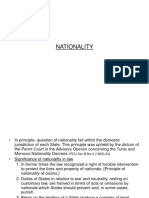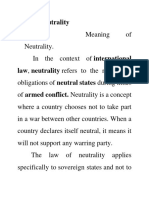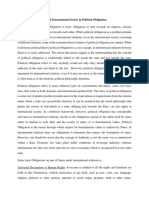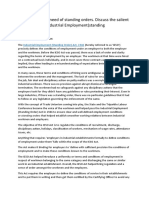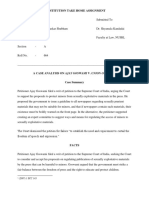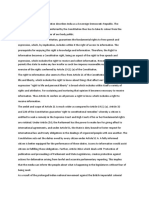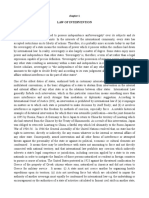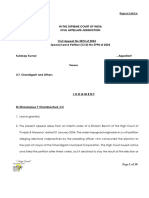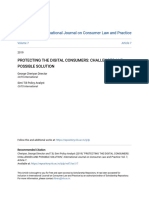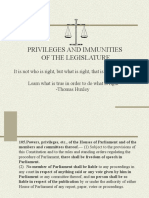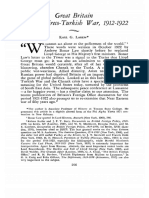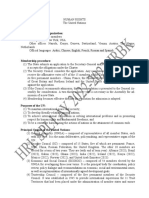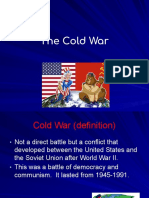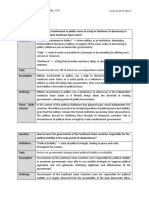0% found this document useful (0 votes)
12K views7 pagesIntervention
The document discusses different types and grounds of intervention in international law. It defines intervention as dictatorial interference by one state in another's affairs, especially through force or threats. It outlines UN resolutions prohibiting intervention and notes exceptions like self-defense and treaty obligations. The text also categorizes interventions as internal, external, punitive, military, subversive, economic and diplomatic.
Uploaded by
Gurpreet SinghCopyright
© © All Rights Reserved
We take content rights seriously. If you suspect this is your content, claim it here.
Available Formats
Download as DOCX, PDF, TXT or read online on Scribd
0% found this document useful (0 votes)
12K views7 pagesIntervention
The document discusses different types and grounds of intervention in international law. It defines intervention as dictatorial interference by one state in another's affairs, especially through force or threats. It outlines UN resolutions prohibiting intervention and notes exceptions like self-defense and treaty obligations. The text also categorizes interventions as internal, external, punitive, military, subversive, economic and diplomatic.
Uploaded by
Gurpreet SinghCopyright
© © All Rights Reserved
We take content rights seriously. If you suspect this is your content, claim it here.
Available Formats
Download as DOCX, PDF, TXT or read online on Scribd
/ 7














